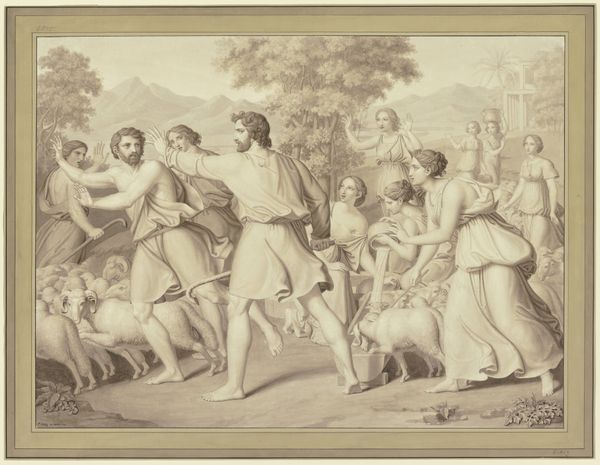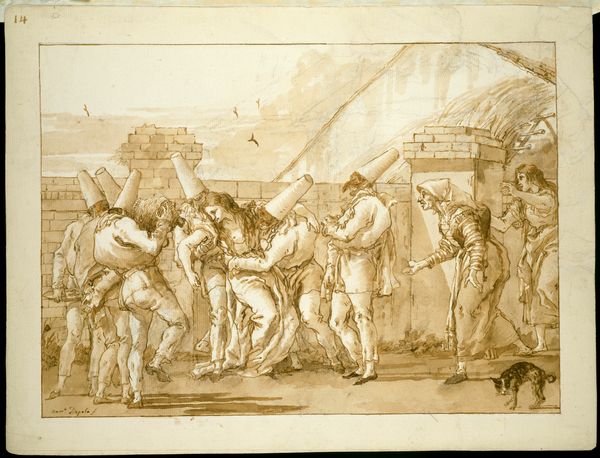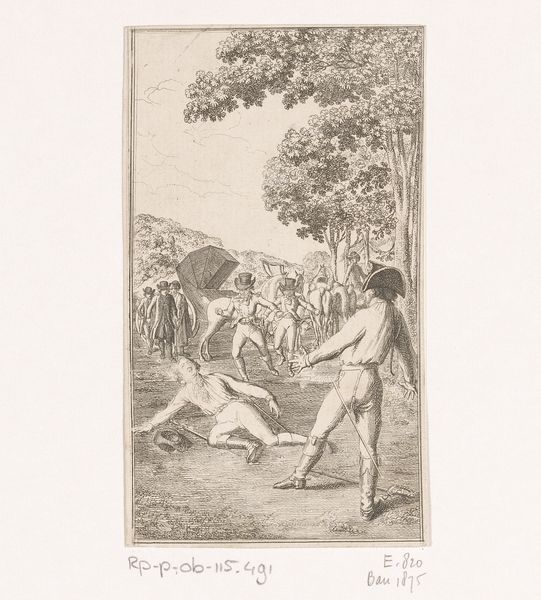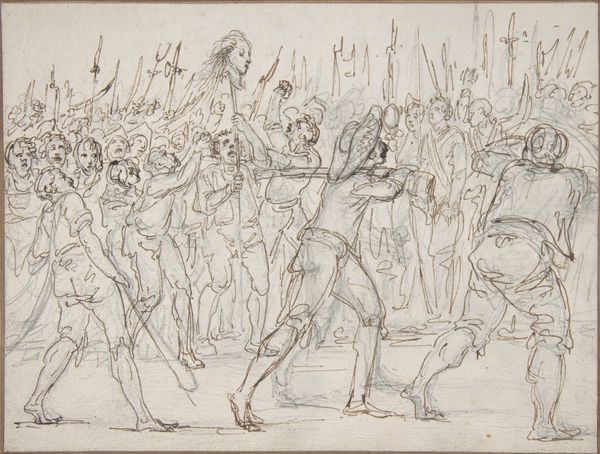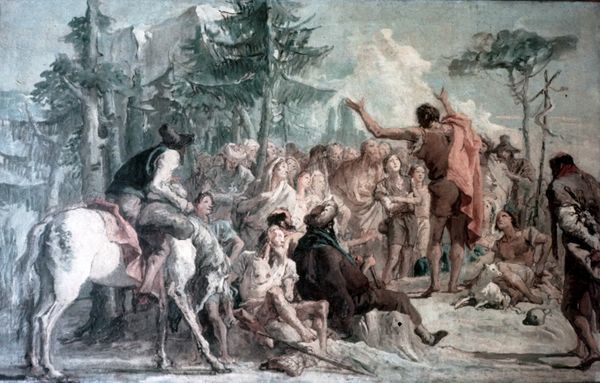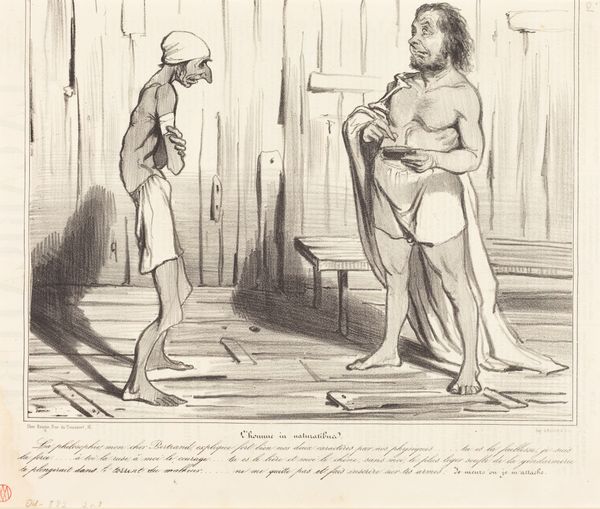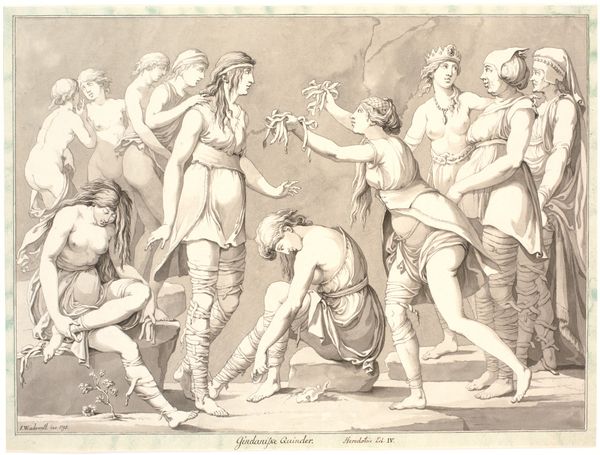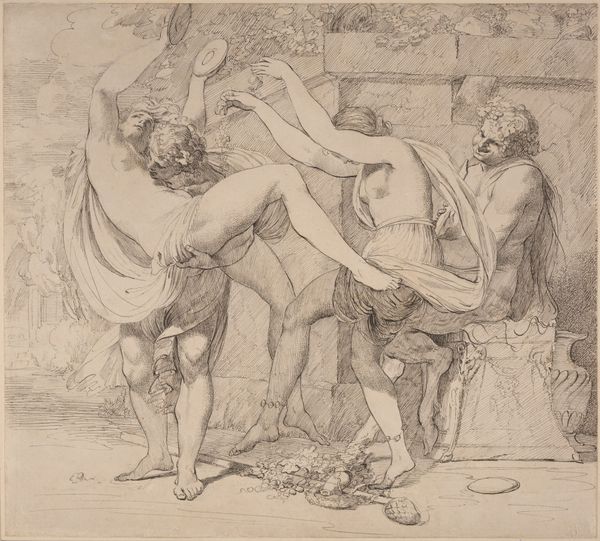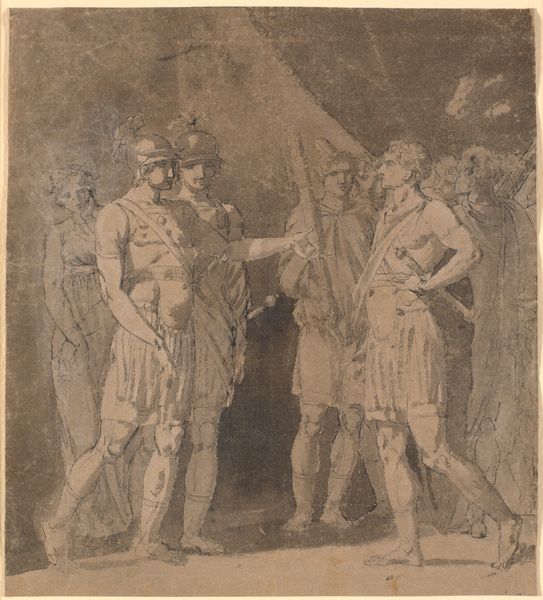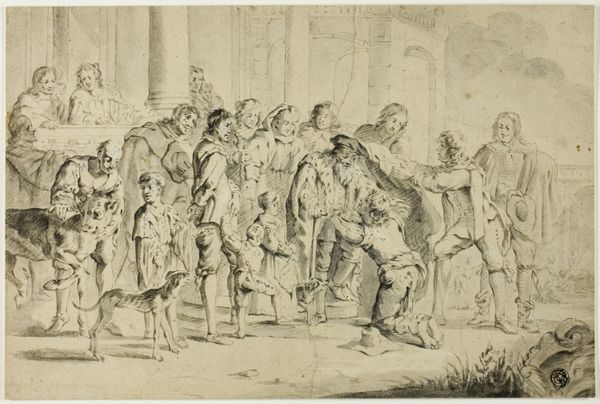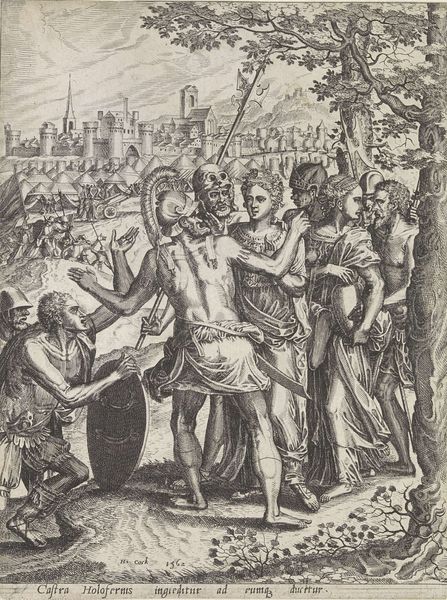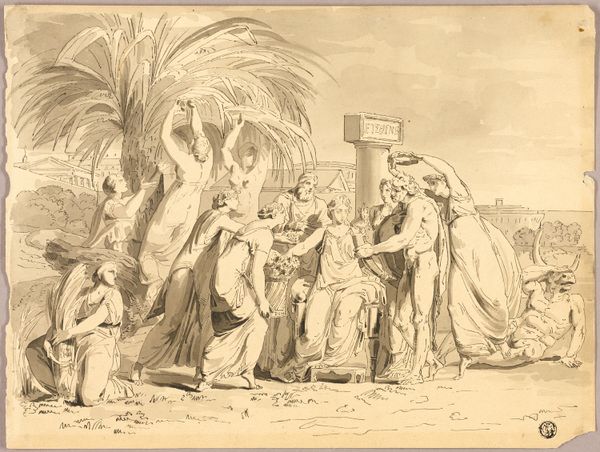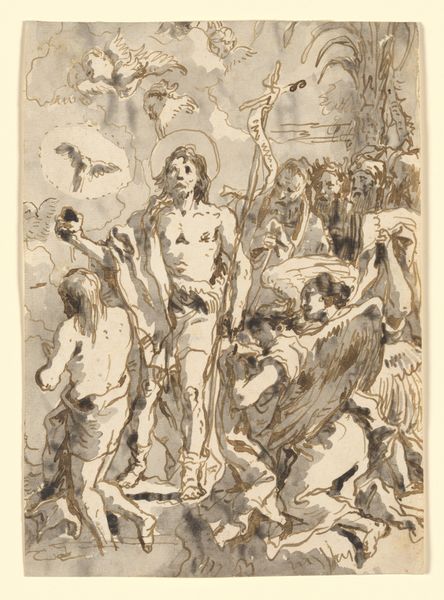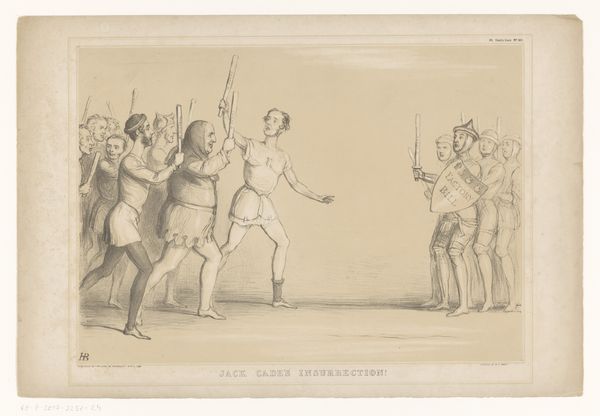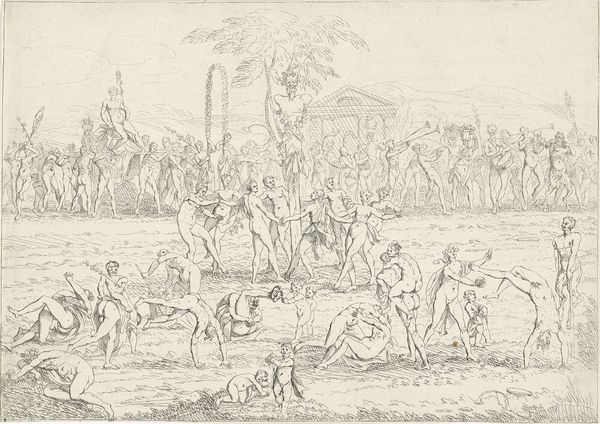
Dimensions: support: 362 x 540 mm
Copyright: CC-BY-NC-ND 4.0 DEED, Photo: Tate
Editor: Here we have "The Wrestlers" by Sir John Everett Millais, currently residing at the Tate. It's a watercolour, and the figures have a sort of classical, almost Grecian, feel to them. What do you see in the composition of this work? Curator: The watercolour medium lends a certain ethereality to the scene. Note how Millais employs a triangular structure, focusing the eye on the wrestlers and the enthroned figures behind them. The light, predominantly soft and diffused, serves to subtly highlight the musculature of the athletes. Editor: So, it's really the interplay of light and form that creates the interest here? Curator: Precisely. Observe the contrast between the active wrestlers and the passive observers. The composition invites us to consider the dynamics of power and spectatorship, rendered through purely formal means. Editor: That's a perspective I hadn't considered. Thanks for illuminating the formal qualities. Curator: My pleasure. Studying the structure of the painting provides a new lens to appreciate it.
Comments
Join the conversation
Join millions of artists and users on Artera today and experience the ultimate creative platform.
tate 9 months ago
⋮
In 1840 the eleven-year-old John Everett Millais, later famous as a member of the Pre-Raphaelite Brotherhood, was enrolled as the Royal Academy’s youngest ever student. By showing figures in action Millais was conforming to centuries-old traditions of art instruction. These insisted that drawing the human form was the most important skill for the artist, and that watercolour should only be used for ‘colouring in’. Turner’s generation not only established the validity of landscape painting, but also explored the intrinsic qualities of the watercolour medium. Official art training continued to focus on traditional values, however. Gallery label, September 2004
